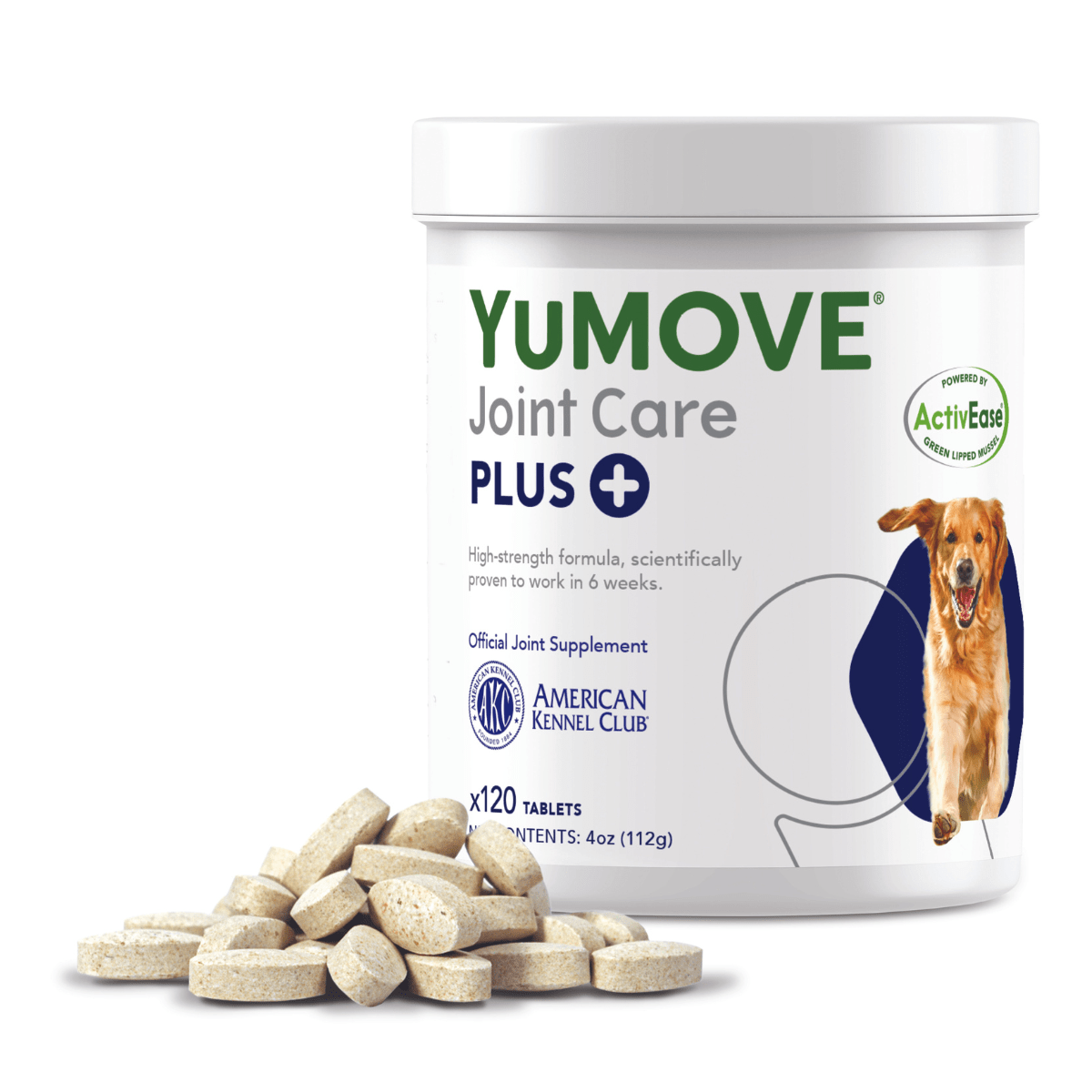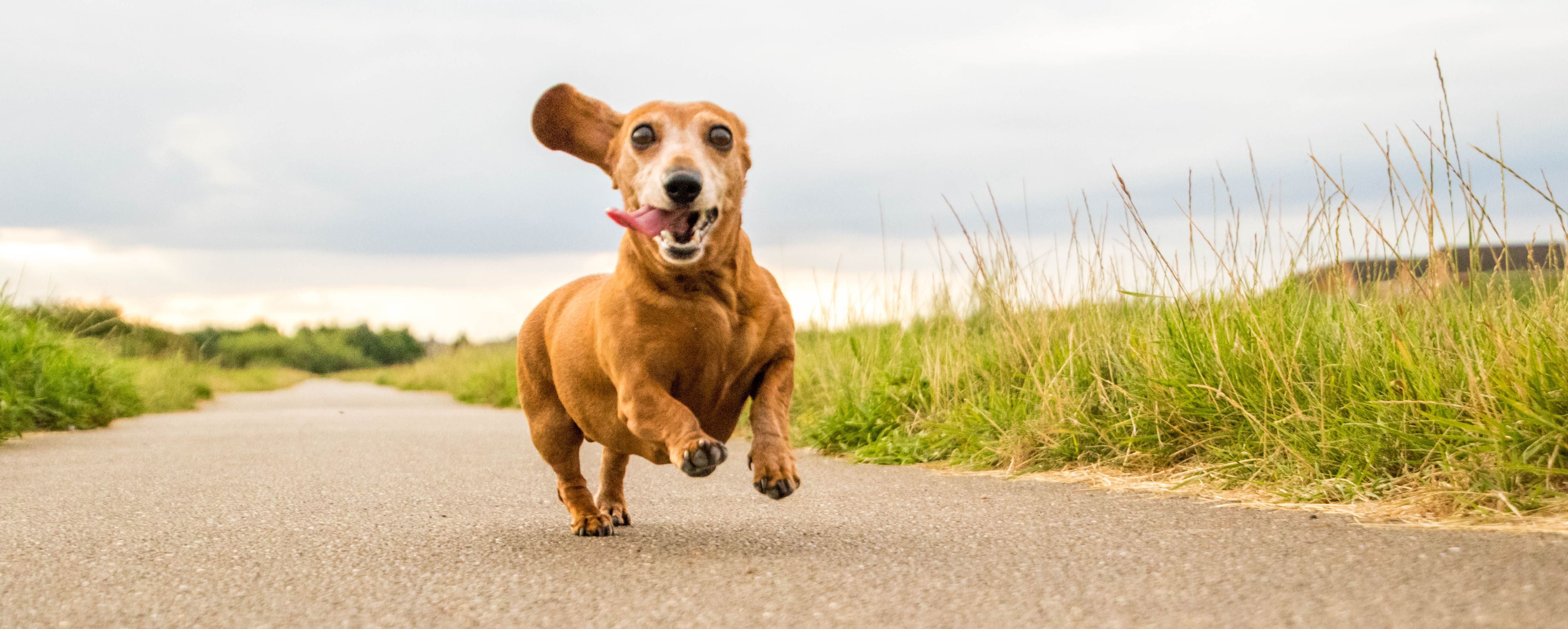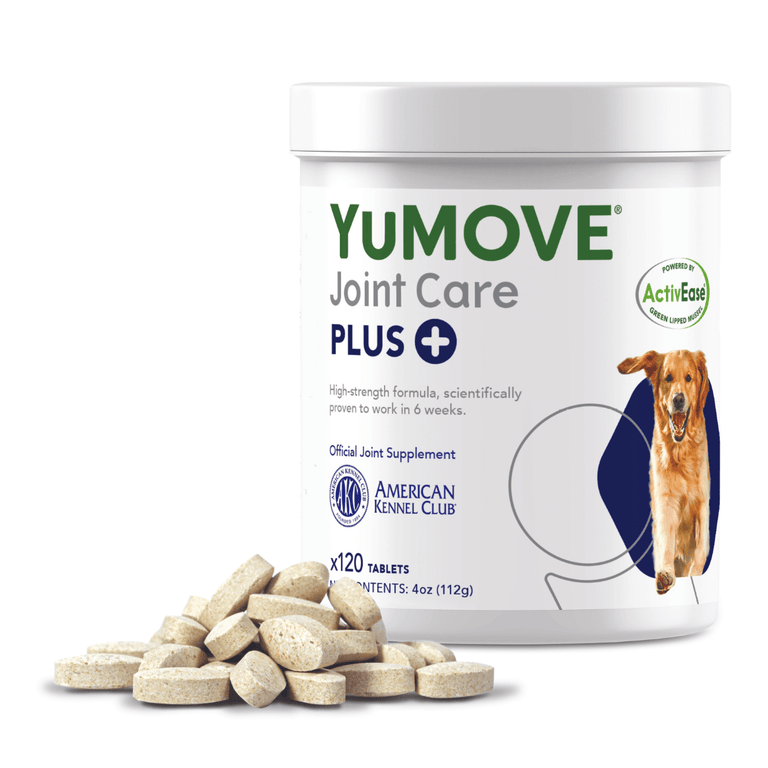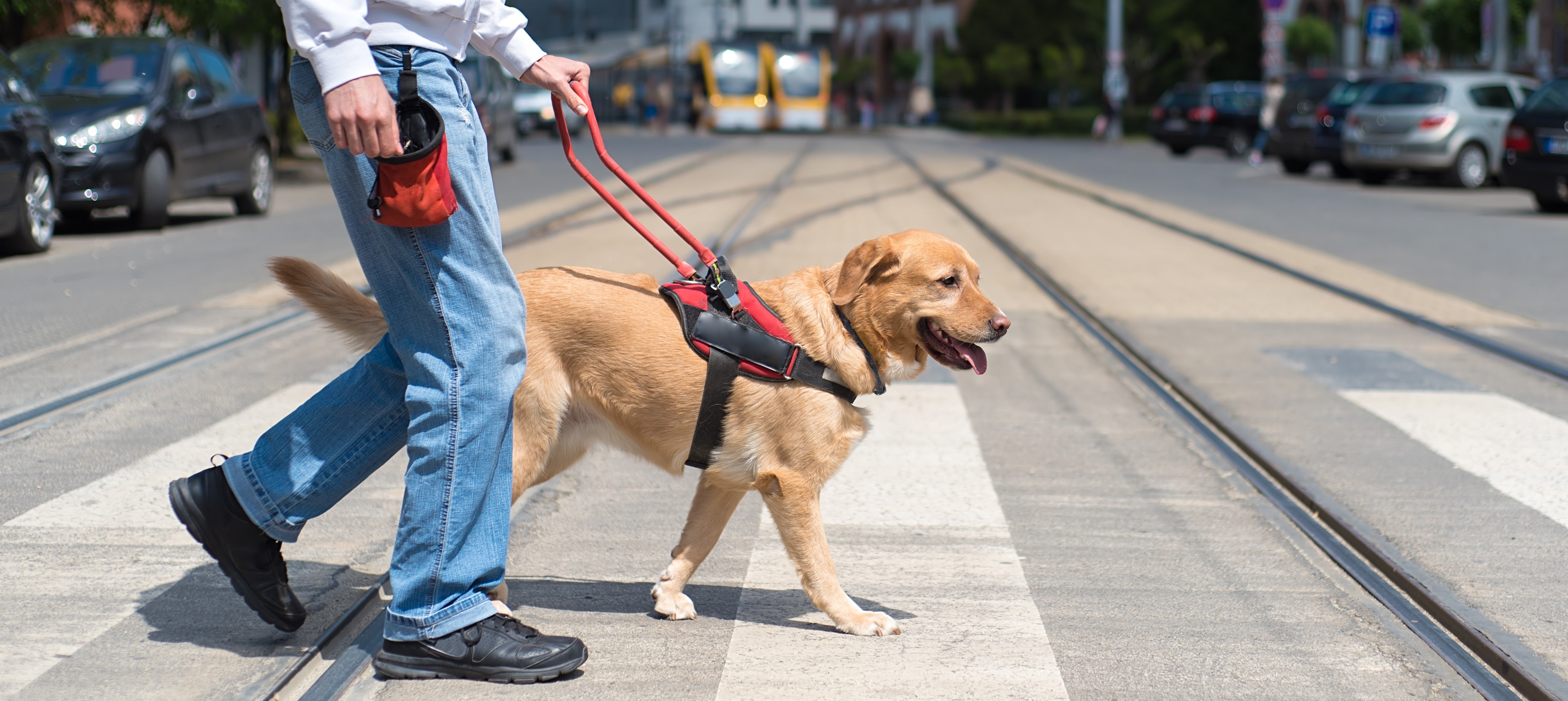As every pet owner knows, our four-pawed pals thrive when they’re able to stay active for life.
No surprise there, right? We’ve all seen how excited our dogs can get about exploring their favorite haunts, going for a chilled-out stroll in a meadow, or playing a high-energy game of fetch. But when push comes to shove, how much canine joint care trivia do you actually know?
Why not put your knowledge to the test below!
If your dog’s sleeping more, that could be a sign of joint stiffness
True. Although dogs generally love napping (especially older dogs), oversleeping can also be a sign that your dog is withdrawing from activity due to stiffness.
If your dog is showing signs of joint stiffness, you should stop taking them for walks so they’re not uncomfortable
False. It’s very important to keep your dog active throughout their life, since this not only aids their health, but also their mood. Regular physical activity helps maintain joint mobility, prevents muscle wasting and avoids excess weight gain. If your dog’s joints are stiff, talk to your veterinarian about the best exercise routine for them. Your veterinarian may recommend that you take your dog on regular but slower and shorter walks.
Stairs can irritate your dog’s joints
True. Although many dogs won’t have any problem going up and down the stairs, stairs do require a greater range of motion in the joints than walking on a flat surface. For dogs who are already dealing with some joint stiffness, this can be uncomfortable. Luckily, there are ramps and even stairlifts that you can buy, to help your dog comfortably go up and down the stairs in style.
Joint supplements are only worthwhile for older dogs
False. Older dogs are typically more likely to experience joint stiffness and can often benefit a lot from extra nutritional support, but there are actually benefits to giving your dog a joint supplement at every stage of their life. Our YuMOVE Joint Supplement for Younger Dogs, for example, is specially formulated to support active joints in young dogs.
Swimming is an awesome form of exercise for dogs with stiff joints
True. Swimming is an awesome form of exercise for dogs with joint stiffness, because it’s low impact, develops muscle tone, and takes your dog’s joints through a good range of motion. Just remember to be safe when you’re taking your dog for a swim, especially if they have stiff joints. Think about buying them a canine lifejacket, and avoid bodies of water with strong currents, harmful algae, or other hazards. Canine hydrotherapy in a pool can be a great option.
Visits to the beach are likely to be tough on your dog’s joints
True. Taking your canine companion to a dog-friendly beach can make for a super fun and happy day out. But even though swimming, fresh sea air, and sunshine can all do wonders for your dog, running in sand, or running in and out of the sea, can be tough on their joints. Watch your dog’s body language carefully during beach visits, and only stay for as long as they’re comfortable. When you’re playing in the water with your pup, stay knee-deep instead of getting in and out completely, so your dog doesn’t have to struggle against the wet sand over and over.
If you think your dog might have stiff joints, you should start doing joint mobility exercises with them at home immediately
False. Although at-home joint mobility exercises can do a lot of good for dogs with stiff joints, it’s very important that you don’t just start doing them yourself without supervision or coaching. Not every exercise is suitable for every dog, or for every situation, and they could even end up being harmful. Consult with a Veterinary Physiotherapist if you notice signs of joint stiffness in your dog, and they can recommend the right mobility exercises to do at home.
The more physical exercise your dog gets, the better it is for their mobility
False. Although staying active throughout life is extremely important for dogs, it’s essential to hit the sweet spot. Getting too little exercise can lead to weight gain and can have a negative impact on their mobility, but over-exercising can be just as harmful. Canine athletes and other highly active dogs experience a lot more impact and wear-and-tear on their joints than other dogs, and they need extra support and recovery to compensate.
Keeping your dog lean can help keep their joints healthy
True. Keeping your dog within the ideal weight range for their breed is one of the best ways of helping to keep them mobile and healthy throughout their lives. Your veterinarian will be able to advise you on the ideal weight range for your dog, and can suggest a diet plan for them if needed. There’s no two ways about it, if your dog is above their ideal weight range, their joints are put under more strain as they move around.
Certain breeds are at greater risk of joint stiffness
True. Certain breeds of dogs are especially susceptible to joint stiffness. Large and giant breeds are often predisposed, such as German Shepherd Dogs, Labrador Retrievers and Bernese Mountain Dogs. It’s important to consult with your veterinarian to address the particular challenges your dog may face.
How many answers did you know? The more you know about canine joint care, the more you can help your dog lead their best life. At YuMOVE, our mission is to help every pet lead their most active life, for life. If you’ve noticed your dog showing signs of joint stiffness, consider starting them on our YuMOVE PLUS Extra-Strength Joint Supplement today.










